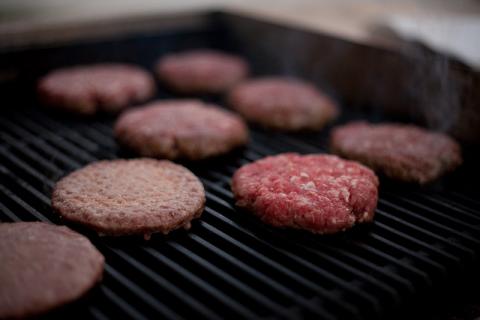Of horseburgers and income inequality

The controversy over horse DNA found in beef burgers should be put it in its proper context - that of a society characterised by quite serious material inequality. By Alistair Fraser.
Horseburger. There’s no shortage of commentary. What else is there to say? We know it highlights important issues for us to consider about the food processing industry and its powers and vulnerabilities. We know it says a lot about the sort of food economy with which we interact on a daily basis. And it forces us to dwell upon the idea of eating horse meat - and indeed meat from other animals we might actually be happy enough to consume. All of these issues have been aptly and effectively discussed this past week.
Somewhat lost in the debate, however, has been attention to the sort of social processes that generate demand for these ever-cheaper processed foodstuffs. Without question, the supply-side of the equation has been tackled: competition drives so-called innovation, new ways of producing food are created, new products conjured up, and new regulatory practices emerge that may or may not do enough to ensure food is safe and/or correctly labelled, etc. But what about the demand-side? There are two connected issues here. Let me take the more personal one first.
I don’t eat processed meat. I worry about how it’s made, about why it’s often so cheap. I have the luxury of making this choice because I’m well-paid (I’m a university lecturer). I’m therefore not at all in the market for cheap burgers. Lucky me. In this regard, indeed, I reckon I’m probably quite similar to many of those who’ve been writing about the horseburger scandal this week. So what? Well, it matters because my higher income and absence from the potential horseburger market cannot be divorced from the existence of households on much lower incomes and who are in the market for cheap burgers (and other cheap processed food). In other words, there’s a social process unfolding around us – a process that is largely steered by the well-paid and well-to-do in an effort to try and deal with the tensions conjured up by capitalist society – that creates inequality and which in turn goes a long way to generating the demand for the sorts of food we’ve been thinking about this past week.
Consequently, the second issue here is the existence of a large class of people for whom seriously digging around for low cost food is a requirement to make ends meet. The Household Budget Survey from the Central Statistics Office offers some useful insight here. Average weekly household expenditure on food in 2009-10 was €131, but there were some serious differences between the richest and poorest households, with €221 spent each week in the richest households versus just €66 in the poorest (see p.18 of the HBS report). Note also that, whereas the richest households spent just 12.9% of their income on food, that €66 was 18.8% of income in the poorest households.
The upshot, especially in the context of austerity policies in Ireland, is that there is a substantial marketplace for very cheap food. Indeed, calls for further reductions in social welfare payments will only make this demand – the sort of demand that thinks it fine that eight burgers should cost no more than €2 – more intense.
Given this, the outrage this week shouldn’t so much be that anyone has had to eat horse meat, but rather that we have such levels of inequality in our society and indeed such a large proportion of the population that feels forced into finding these so-called bargains. It’s impossible, therefore, to consider the horseburger story without also recognising that it’s part of the legacy of political and social pressure from Ireland’s professional and managerial classes for sufficiently large salaries that enable them to live in large houses, own cars, go on holiday, and – crucially – eat well, such as by eschewing processed meat for higher quality cuts.
It also follows from this, however, and crucially given the debate today, that there is actually still a significant degree of (implicit or explicit) support, not only for the continued expansion of this income inequality but also for the consequential demand among the poor for more cheap food. In essence, cheap food for the working classes helps keep wage demands low and inflation in check (and protects the value of savings for those, like me, who are lucky to have any). Indeed, along with imports of manufactured goods from China, the availability of cheap food, much of which was sourced from post-structural adjustment ‘third world’ economies, was a major contributor to post-1983 economic recoveries in the so-called ‘advanced’ capitalist societies, including western Europe (see Jason Moore for a much sharper take on my general point here). Thus, underlying the horseburger debate is a tension between those who want to see more of the sort of meat processing that can create cheap food (not least so social welfare payments needn’t increase), but just so long as this sort of production doesn’t suddenly create headline news and shine unwelcome light on the true nature of our food system. Horseburger has gone a long way to informing us about this food system, but we should also put it in its proper context of a society characterised by quite serious material inequality.
Image top: I Are Rowley.
